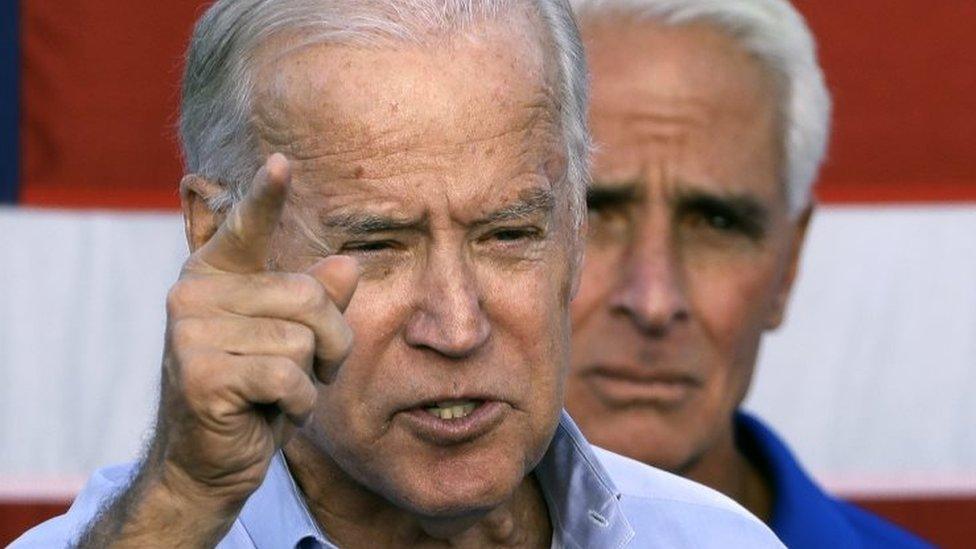America: The people's rage
- Published
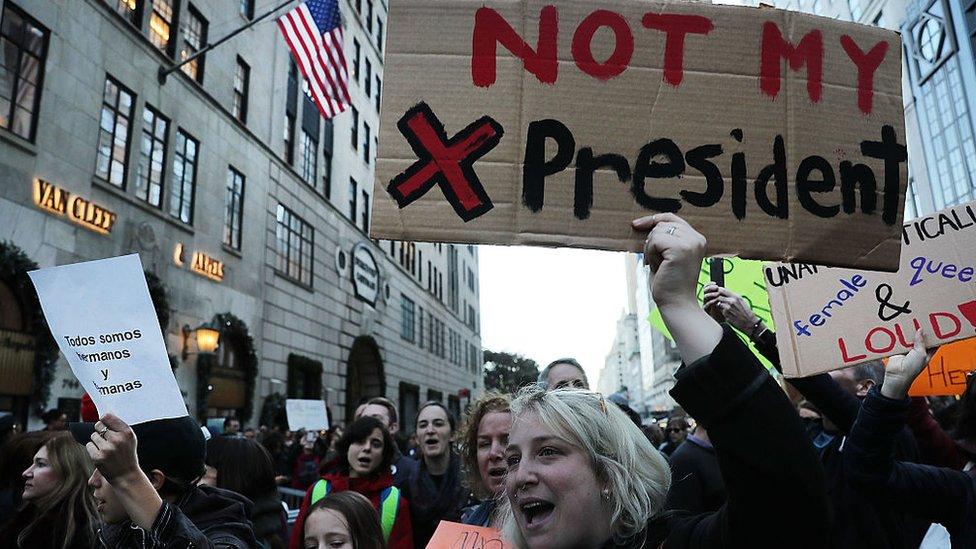
In Manhattan from mid-town to Central Park, the city is choked with frustrated drivers. Trump Tower, on Fifth Avenue, where the president-elect is building his administration, has become a venue for demonstrators.
There are flash protests with signs like "Immigrants welcome". Office workers gaze down, some pump their fists in support.
The times have an uncertain edge.
There is talk of protesting at the inauguration in January, of a women's march to Washington on the day after.
Donald Trump - still in campaign mode - blames the protests on the media.
Some of the crowds shout: "He's not my president," but democracy has delivered its verdict.
Millions of Americans celebrated the political earthquake.
At Mr Trump's victory rally the other night, I watched a man turn towards the banks of cameras and then give the media the finger.
"We won!" he shouted.
For him and others, it was a glorious slap in the face for the elite.
Despite 18 months campaigning, it is far from clear what a Trump presidency will do.
When he met last week with President Obama he was awkward, hesitant, ill-at-ease as if, all of a sudden, he was unsure of what he would do with the power he had won.
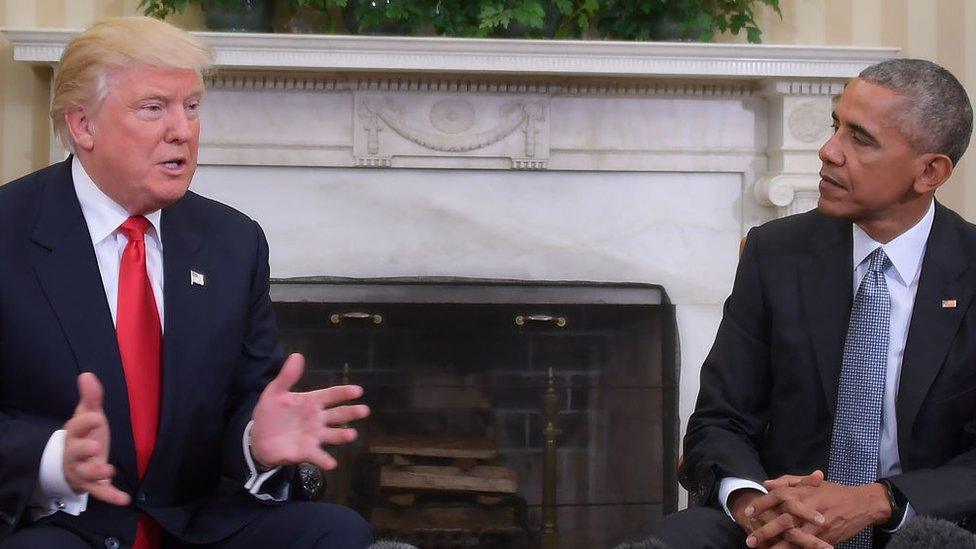
There are signs that Mr Trump may keep parts of President Obama's medical care programme
On the campaign trail, his promises usually came with the phrase "Believe me."
The list was long:
The wall with Mexico would be built, and the Mexicans would pay
Obamacare would be repealed and replaced
11 million undocumented immigrants would be deported or imprisoned if they returned
Which of these many promises will be implemented?
We don't know.
Now, there are notes of hesitancy.
Some parts of Obama's health care programme might be retained.
We hear less about the wall.
There are more questions than answers.
Will a Trump presidency be pragmatic or ideological?
The priority looks as if it will be the economy, with a $1 trillion fiscal stimulus and corporate taxes slashed.
Although many voters were drawn to his simple messages, policy did not provide the energy of the campaign.
The mood at his rallies was visceral.
The crowds bought in to his anger, his rage against elites, his willingness to mock political correctness and defy multiculturalism.
I told a group of evangelicals in Charlotte, North Carolina, that I was puzzled by their support for Donald Trump; he hardly seemed a born-again Christian.
It didn't matter, they replied.
In their guts, he felt like one of them.
He was anti-abortion, would defend gun-owners' rights and would put a conservative into the Supreme Court.
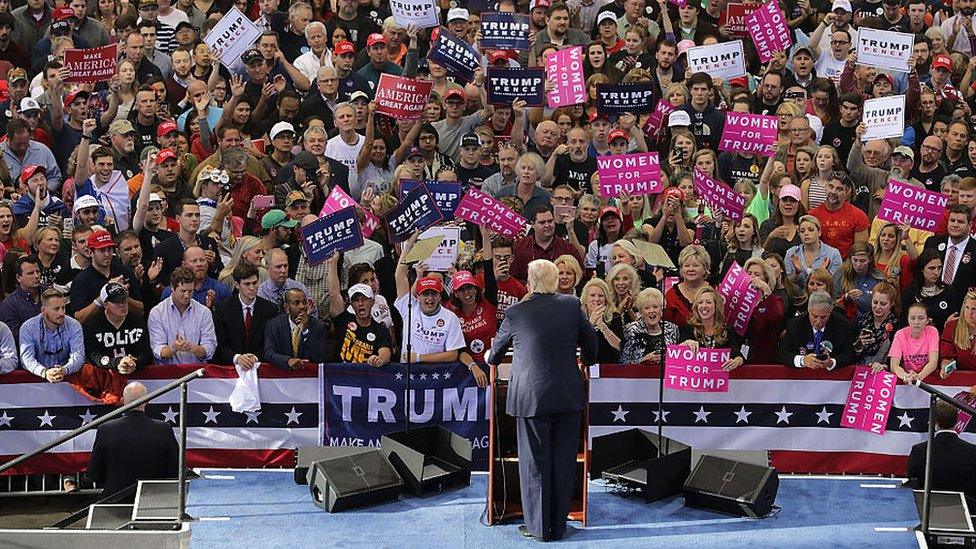
Many white working class Americans voted for Mr Trump
I frequently asked women about the tape in which Mr Trump bragged about being able to grope women because of his fame.
It made many of them uneasy, but they parked their reservations.
They liked his message that the "swamp" of Washington needed cleaning up.
He opened a door for all the frustration with the liberal elites.
They could stand in a crowd and chant: "Drain the swamp!"
In the end, 53% of all white female voters chose Mr Trump.
Certainly, he mined strong support from the white working class and those left behind by globalisation - but that was not the whole story.
Many wealthier Americans supported him.
Yes, jobs had disappeared - but this revolt went much deeper.
It was a cry against the speed of change and the disappearance of a known world.
The vote for Mr Trump was an act of nostalgia, seizing the future by reclaiming the past.
The international community is trying to decode Mr Trump, to separate campaign rhetoric from the reality of governing.
There is great unease in almost every capital.
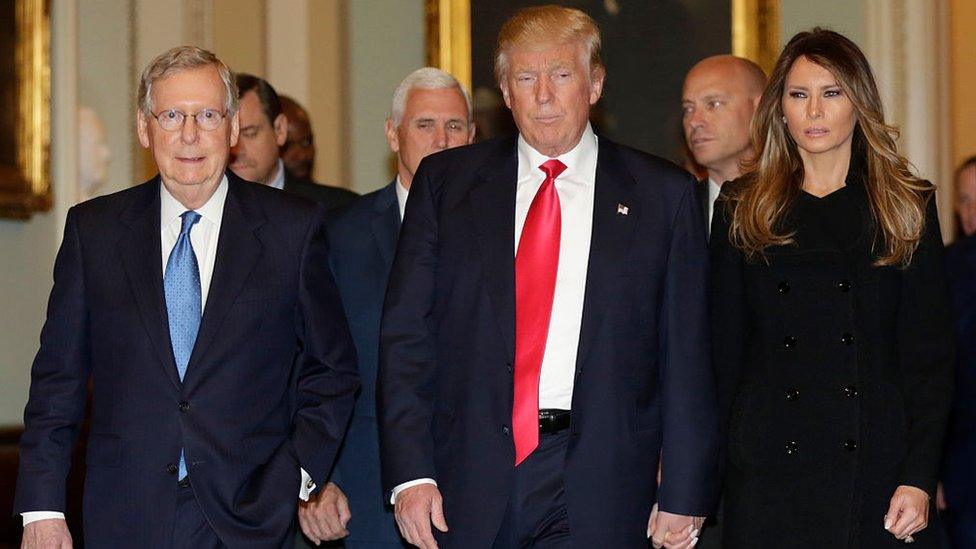
Donald Trump is seen as a pragmatist, not an idealist
Will he tear up trade agreements?
Will he almost casually weaken Nato's binding promise to stand by other members?
Will he cancel last year's agreement in Paris on climate change, having dismissed global warming as a hoax?
Will he weaken the architecture of international agreements that have underpinned the global order since World War Two?
Above all, does his election signal that American leadership is on the wane, that Mr Trump's America will no longer be the final guarantor of peace?
At the moment, the jigsaw pieces are being placed on the board, but we don't have a picture.
What is missing is the idealism that previous incoming presidents brought with them to the White House.
Having spent weeks on the campaign trail following Mr Trump, it would be hard to imagine the equivalent of the peace corps emerging.
His core slogan was "Make America great again", but this was not about re-establishing the "city upon a hill" or burnishing American exceptionalism or welcoming the "huddled masses".
It was much more about raising the drawbridge, of circling the wagons against the outsider, the different, the other.
It leaves countless Mexican migrants and potential Muslim newcomers in limbo.
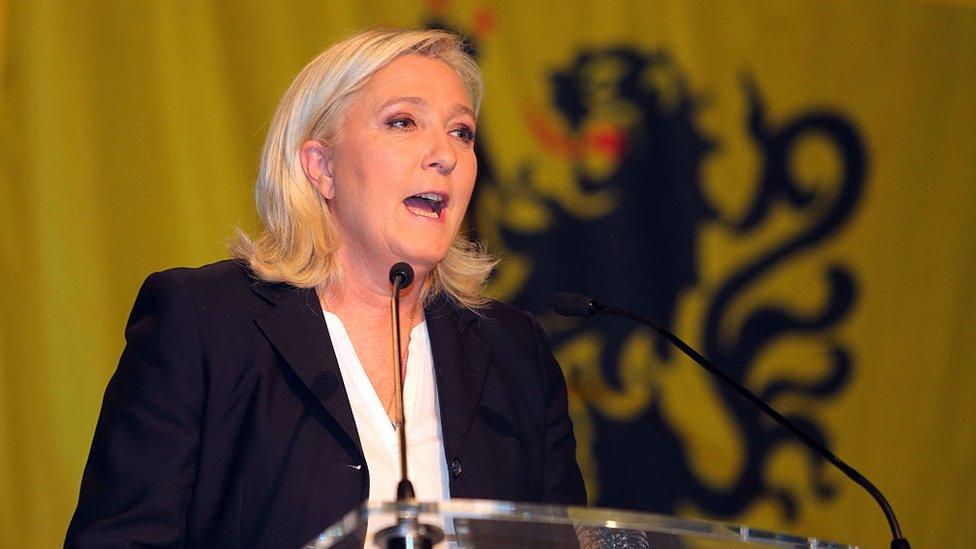
Could politicians like Marine Le Pen benefit from popular disillusionment with globalism?
Western liberal democracy has, so far, failed to find an answer to globalisation.
Governments and leaders struggle in the face of global forces they only dimly understand.
They are in power but powerless.
In Europe, leaders respond to each crisis with calls for more integration, with little regard to what voters want.
Europe has struggled to forge a policy on migration that resonates with the people.
Governments often appear to fear their own electorates.
That leaves a vacuum for leaders such as Marine Le Pen and Geert Wilders to fill.
What will shape the future will be less the Donald Trumps of this world or his fellow-travellers.
Innovation and technology are the agents of change.
The challenge for liberal democracy is how to provide a sense of security, and part of that will involve protecting identity.
Donald Trump understood the alienation of a swathe of America.
He was often careless with the truth, but he had simple, powerful messages.
He was rarely disciplined, shifting positions from day to day.
It is quite possible he himself does not know in detail what he will do.
Will he be across policy detail or will his presidency bear the name Trump - like so many of his towers and hotels - but with the management of the company left to others?
But the lessons of his campaign will be scrutinised particularly closely in Europe.
Donald Trump's astonishing victory poses a question: "Can the centre hold?"
- Published11 November 2016
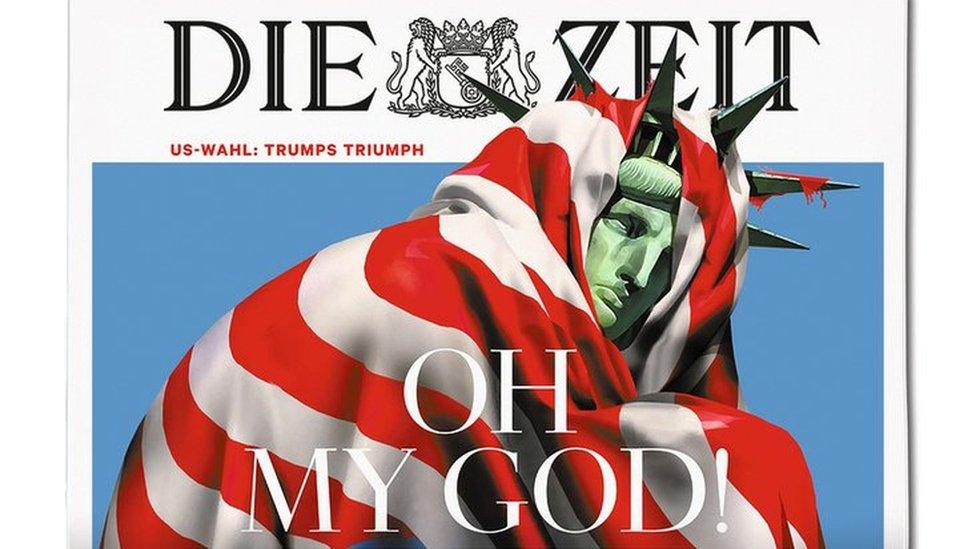
- Published11 November 2016
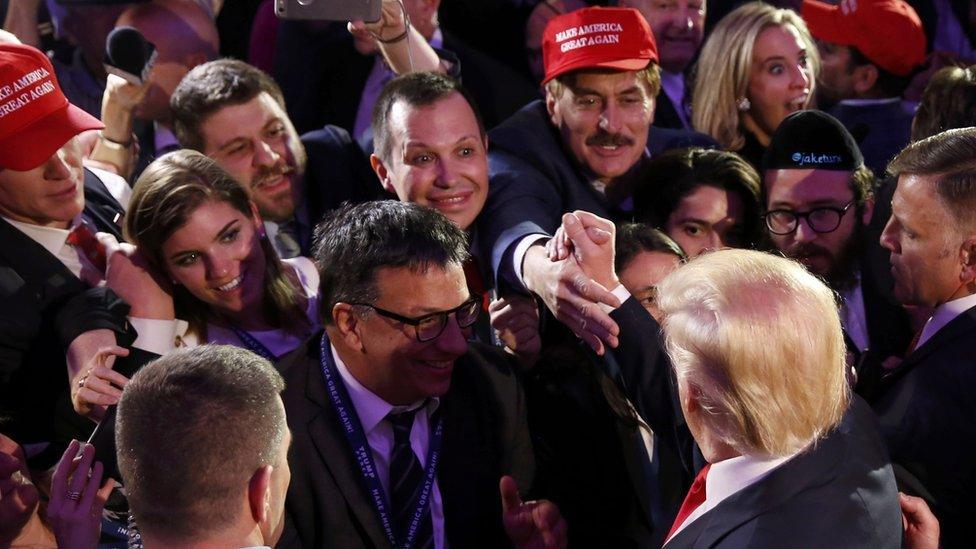
- Published11 November 2016
